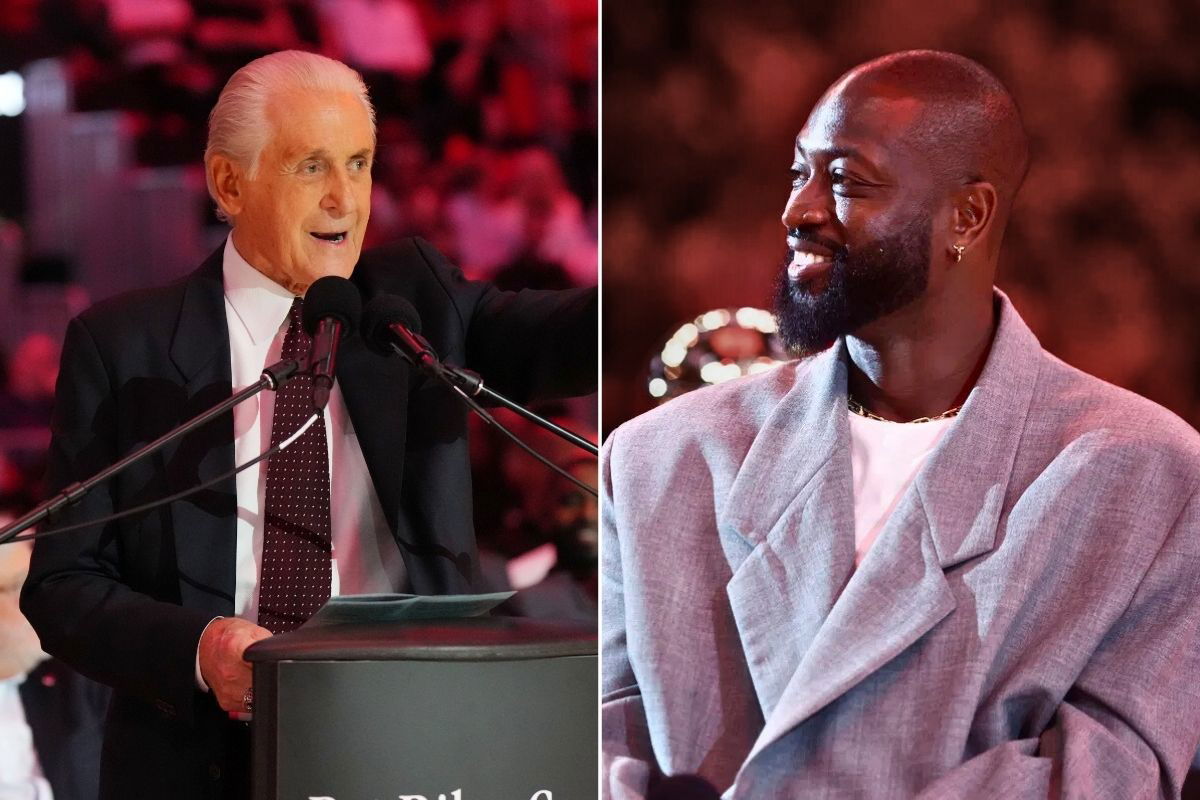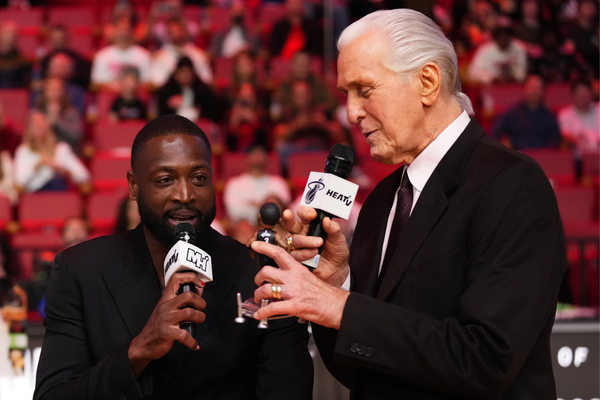
Imago
Credits: IMAGN

Imago
Credits: IMAGN

Imago
Credits: IMAGN

Imago
Credits: IMAGN
NBA is not just basketball, it is a battle that runs beyond the timer! The evolution of Dwyane Wade and Erik Spoelstra’s relationship is an example of the tension between individual stardom and championship team-building. When Spoelstra took the reins of the Miami Heat in 2008, he inherited a franchise icon at his peak. Wade, the 2006 Finals MVP accustomed to carrying heavy minutes and offensive burdens. The friction peaked during the Heatles era (2010-14). Particularly when Spoelstra trimmed Wade’s playing time from 37.1 to 34 minutes in 2010-11. It was a decision the superstar initially resented. But not everything stays off. It comes to the front, and when Wade speaks, it is more than just uncovering the past.
Watch What’s Trending Now!
However, Dwyane Wade later recognized the method behind Spoelstra’s moves. What began as a clash of egos ended in mutual understanding and respect. However, there’s one favorite coach of Wade’s who delivered exactly what he demanded right from the go. It was Pat Riley. On Time Out with Dwyane Wade on the WY Network, Wade opened up about his coaching needs as a player. He said, “I need someone in the moments of chaos that I can look to, and they’re as calm or calmer than me.” Wade shared that he’s the one who needs a settled guiding light to shine on the sidelines whenever there is drama on the court.
“Enter Pat Riley into the picture, because Pat Riley was the calmest leader on the sideline when everything is going chaotic, and you like… and he’s like [calm look]. So you need that.” Dwyane Wade’s first need is met. But he didn’t stop with his list here. After all, an MVP like him would have multiple demands for what his mentor should be like, right? So he went on to tell, “And the second one I need is, I need a coach that I can curse at, that I can curse, right? And that can curse me back.” It might sound like one, but it’s not an unusual demand in a game this aggressive.
“Because this is really for the head coach, but I need you to be the sounding board for these. And I—but I need you to be able to give it back to me.” Naturally, you’d need someone to release that energy at, and who can give it back to you. “And so I always say David Fizdale was mine during my championship runs in Miami.” The energy balancer was David Fizdale for Dwyane Wade, the assistant coach of the Miami Heat, during Pat Riley’s reign.

He even shared a slight contrast between Fizdale’s and Spoelstra’s techniques. “Because I couldn’t say this to Spo, right?” Referring to the curse words he could use with Fizdale. So overall, Dwyane Wade’s coaching requirements have always been met. Be it through Pat Riley’s poised leadership, Erik Spoelstra’s strategic brilliance, or David Fizdale’s emotional pushback, each coach fulfilled a role in Wade’s championship journey.
Dwyane Wade adds fuel to the NBA draft lottery debate
Dwyane Wade’s recent comments on the NBA Draft Lottery have reignited a long-standing debate about the intersection of business and competition in professional basketball. He is a three-time champion and current minority owner of the Utah Jazz. Which is why Wade’s perspective carries weight. His remarks were deliberately measured yet provocative. “It’s a business,” he emphasized, not making any outright accusations but framing the lottery’s unpredictable outcomes. He continued, “Now I’m not saying anyone is doing anything cause I’m not, I’m not a witness in it, but this is a business that we are part of.”
His words weren’t just about Dallas’s 1.8% miracle. They were a reminder that the NBA, at its core, is an entertainment empire as much as a sporting competition. Dwyane Wade pointed to history. He invoked the 2008 draft as a case study in lottery skepticism. That year, the Chicago Bulls, with just a 1.7% chance, leapfrogged the Miami Heat to draft Derrick Rose first overall. While Wade’s Heat settled for Michael Beasley at No. 2. “So maybe that’s a coincidence,” Wade mused, before adding, “Maybe LeBron going to Cleveland is a coincidence. Maybe these things are, but it’s good to talk about.”
The hint was clear: the NBA’s most franchise-altering moments often defy odds in ways that spark conspiracy theories. Dwyane Wade’s choice of examples, Rose’s rise in Chicago, and LeBron’s homecoming in Cleveland weren’t accidental. By framing these events as “good to talk about,” Wade subtly acknowledged the league’s unspoken nature. While Dwyane Wade carefully avoided outright allegations, his remarks underscored a growing sentiment among players, executives, and fans.
The lottery’s randomness sometimes feels too convenient. The NBA has long battled perceptions of rigged drafts, from Patrick Ewing to Zion Williamson, and Wade’s indirect stance fuels that fire. But it also posed a challenge: as the NBA expands its global footprint, can it afford to let skepticism revolve around its processes? Wade didn’t demand answers. He just reminded everyone that the questions matter.

